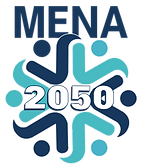New Paper on the Future of The India Middle East Europe Economic Corridor (IMEC)
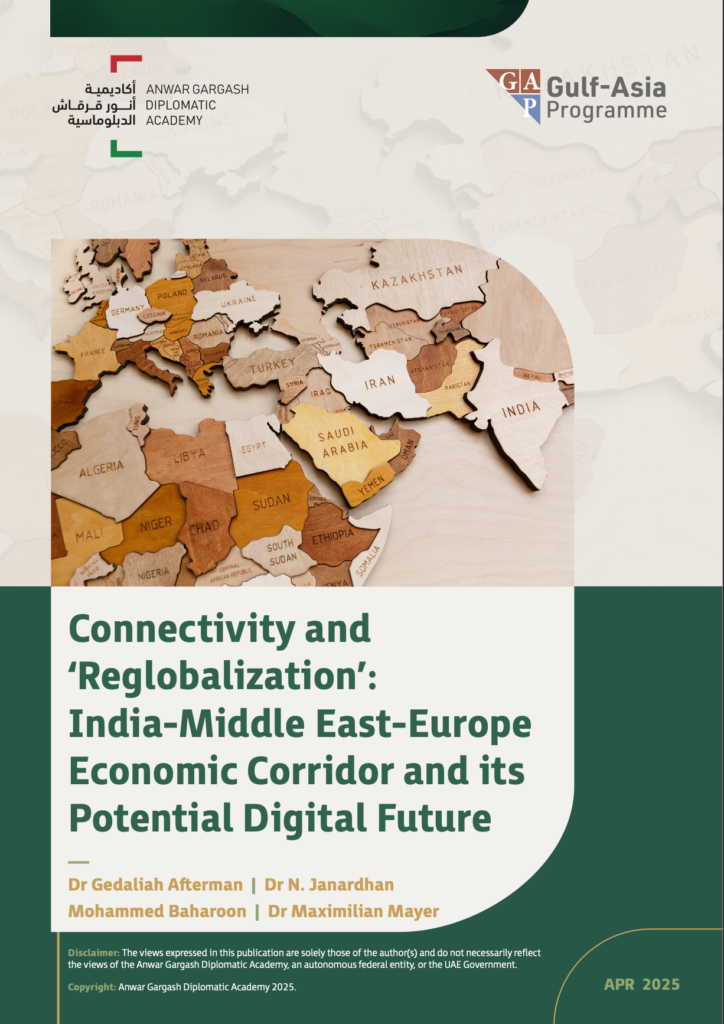
As global dynamics continue to evolve, the concept of “reglobalization” is reshaping conversations around connectivity, trade, and diplomacy. In a new publication by the Anwar Gargash Diplomatic Academy, a group of leading scholars explore the strategic potential of the India-Middle East-Europe Economic Corridor, with a particular focus on digital infrastructure and regional integration. Co-authored by: […]
Gaming: A Catalyst for Transformation in the MENA Region

Gaming: A Catalyst for Transformation in the MENA Region The MENA region is rapidly emerging as a global gaming powerhouse, with the industry poised to revolutionize the region’s economy, culture, and technological landscape. As we look towards the future, it’s clear that gaming is not just a form of entertainment but a driving force for […]
The Simple Regional Picture moved to a Complex Regional Sculpture

Between 2002 and 2022, the geostrategic picture of the Middle East region was relatively clear. There were clear colors of “camps” and “parties”: Iran as the enemy of almost all; American presence in Iraq (based on regional interests); the Arab Peace Initiative as a game changer of Israeli-Arab diplomacy, the Arab Spring and the Abraham Accords – all created a two-dimensional picture of potential alliances, with shared interests and logical drivers for cooperation.
Middle Eastern Perspectives 2: Regional Cooperation and Development
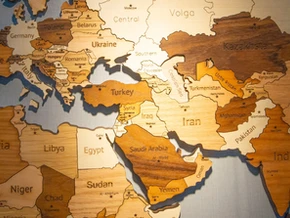
Israeli author Kobe Huberman wrote an article simultaneously published with my previous article under the same title. Huberman’s article was published on our Middle Eastern initiative’s website, MENA2050. Both articles discuss two key aspects: the transformation of the Middle East’s political landscape from 2002 to 2022 and the need to reshape perspectives into a three-dimensional framework to address challenges bravely. This includes reframing the peace process in the Middle East from a perspective of regional cooperation and solidarity, for the benefit of all people in the region.
While acknowledging the security challenges faced by the region, it is essential not to overemphasize them at the expense of supporting developmental initiatives that contribute to stability. Several examples demonstrate this point, such as the electricity-for-water initiatives involving the United Arab Emirates, Jordan, and Israel. The establishment of the Saudi sovereign wealth fund’s direct investment initiative in Iraq with its various sectors, as well as the regional multi-party cooperation in electricity transmission to Lebanon and the connection of Iraq to the Gulf electrical grid, highlight the potential for regional collaboration and its positive impact on development.
Middle Eastern Perspectives

Attendance at the Herzliya Conference, or “Herzlia” as some pronounce it, is seen as a new station in exploring and understanding the spectra of Israeli politics and Israelis, as well as others who attended or participated in its sessions. Investigation was the key to all discussions to understand the details of recent approaches towards the (Chinese/American) region and the potential transformations it may produce in the regional balances. Despite the diversity of Israeli perspectives, their security concern remains the primary driving and governing force for their regional outlook, followed by the development of what the Abraham Accords have established. The third is achieving “normalization” with the Kingdom of Saudi Arabia, which is manifested in their urging of the American ally to leverage all its political weight with Riyadh to achieve that. Despite the absence of accounting for the costs or consequences of such an approach from the Israeli side, or understanding and comprehending Riyadh’s priorities from its Saudi and Islamic perspective, the second driving force is the unstable political situation in Israel, which “repels” any possibility of such rapprochement.
The Establishment of the MENA2050 Climate Action Committee: Working Towards a Greener Future
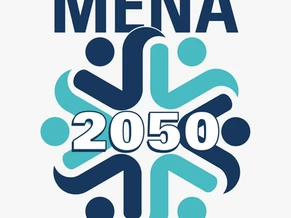
Climate change is not just an environmental concern; it is a multifaceted challenge that affects socioeconomic factors, public health, and even geopolitical stability. The Middle East and North Africa (MENA) region, in particular, is highly vulnerable to the adverse effects of climate change. With its arid climate, rapid population growth, and socio-economic disparities, the region faces significant risks such as increased desertification, water scarcity, extreme weather events, and rising sea levels. To address these challenges and seize the opportunities for regional cooperation, the MENA2050 Climate Action Committee (CAC) has been established.
Navigating Rough Seas: MENA Charting a Course towards Collaboration.

The Middle East and North Africa (MENA) region, rich in culture, history, and resources, is a region of remarkable diversity and complexity. Its geostrategic position has stimulated both conflict and competition among regional powers and global influences, which have often led to destabilization. This intricate nexus of factors has contributed to the region’s unique challenges, making it a distinctive case amid the growing global trend towards interconnectedness and interdependence.
The escalating global interdependence can exacerbate instability for regions like the MENA, which grapples with internal fragmentation while trying to find a path to comprehensive cooperation. The adverse impacts of global issues such as pandemics and conflicts underline how this interconnectedness can have negative consequences. Gleaning from other regions’ experiences, both the positive and negative, is crucial for MENA’s journey towards cooperation.
Why did I join MENA2050?
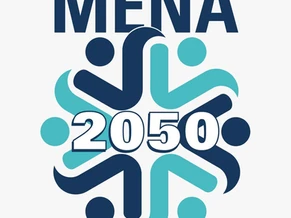
When a communal conflict is both violent and intractable it is worth considering whether it may become less impossible to resolve if we change our perspective.
The Northern Ireland ‘Troubles’ came to an end when people began to see the context as something broader than just a struggle between Pro-British Protestants and Pro-Irish Catholics within Northern Ireland. We started to appreciate that the problem of disturbed historic relationships also involved the relationships between North and South in Ireland, and between Britain and Ireland. Addressing these wider sets of relationships within the European Union context, and with a positive US approach, led to the Belfast/Good Friday Agreement in 1998 and whatever the political difficulties, there has been no serious threat since then of a return to the violence of the past.
Exclusive Interview: Dr. Hakima El Haite on Climate Change and Insights into COP28
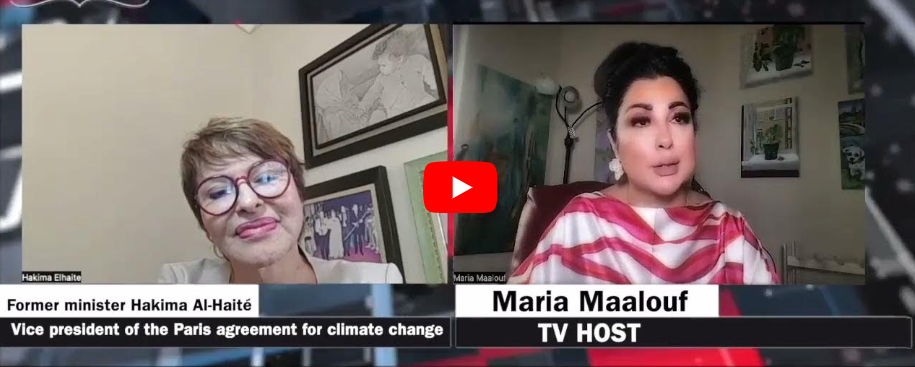
In an exclusive interview conducted by Maria Maalouf, gain insights into the perspectives of Dr. Hakima El Haite, the esteemed head of MENA2050’s Climate Change Committee, on the subjects of climate change and the upcoming COP28 event. The conversation explores the role of the United Arab Emirates as the host, Western reactions to the event, and the outcomes of COP27. Additionally, it delves into aspects of renewable energy in the USA and its partnership with the United Arab Emirates in the context of climate change. Dr. El Haite provides insights into Morocco’s approach to addressing climate issues, drawing from her experience as the former Minister of Environment in Morocco. This interview offers insight into the challenges and opportunities in the context of COP28.
Watch MENA2050 CEO Eli Bar-On interview by l’Observateur du Maroc et d’Afrique
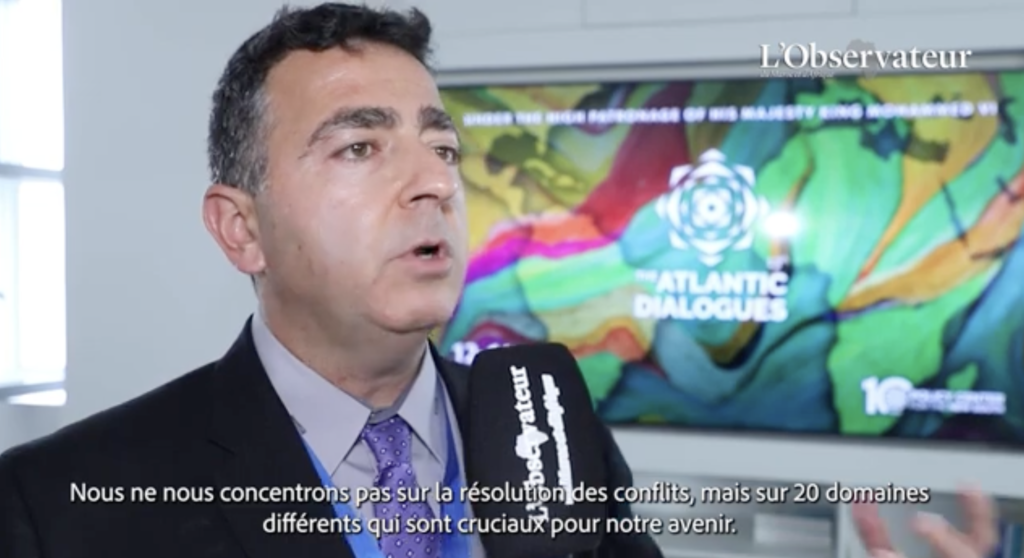
Watch MENA2050 CEO Eli Bar-On interview by l’Observateur du Maroc et d’Afrique
